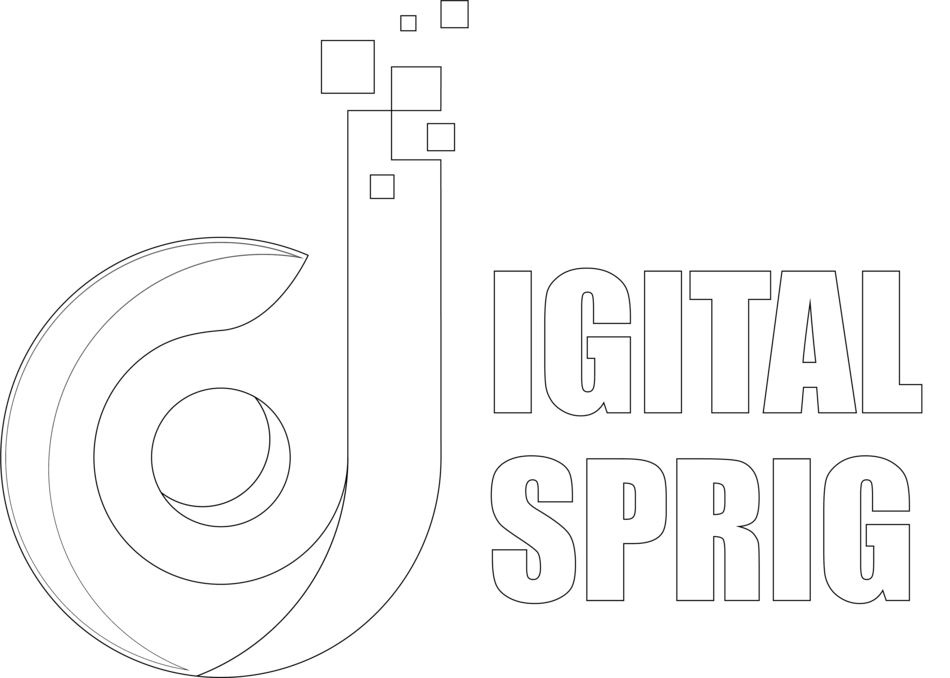Unlocking Success: Digital Marketing Strategies for the Hospitality Industry

Digital marketing is essential for success in the hospitality industry. This comprehensive guide offers actionable tips and tricks to enhance your online presence, engage guests, and drive bookings for hotels, resorts, and other hospitality businesses.
The Digital Shift in Hospitality Marketing
In the hospitality world, everything starts with the guest experience – and nowadays, that journey begins online. From booking a room to reading reviews, people rely on digital platforms to make their choices. To stand out, hotels, resorts, and other hospitality businesses need to embrace smart digital marketing strategies. This guide offers practical tips to boost your online presence, connect with guests, and increase bookings.
Essential Digital Marketing Strategies for the Hospitality Industry
1. Optimize Your Website
Your website is your digital storefront. It should be attractive, user-friendly, and optimized for conversions.
Mobile Responsiveness: With over 50% of travel bookings made on mobile devices (Statista), ensuring your website is mobile-friendly is crucial. A responsive design ensures that your site looks and functions well on all devices.
Fast Loading Speed: Guests expect quick access to information. A delay in page loading can lead to lost bookings. Tools like Google PageSpeed Insights can help you optimize your site speed.
Clear Call-to-Actions (CTAs): Guide visitors towards booking with clear and compelling CTAs. “Book Now,” “Check Availability,” and “Get a Quote” buttons should be prominently displayed.
High-Quality Visuals: Use high-resolution images and videos to showcase your property. According to MDG Advertising, 67% of consumers say the quality of a product image influences their purchase decision.
2. Implement Search Engine Optimization (SEO)
SEO is essential for improving your website’s visibility in search engine results. Higher visibility means more traffic and potential bookings.
Keyword Research: Identify and target keywords relevant to your business. Tools like SEMrush and Ahrefs can help you find keywords with high search volume and low competition.
On-Page SEO: Optimize your website’s content, meta descriptions, title tags, and headers with your target keywords. Ensure your content is informative and engaging.
Local SEO: Optimize your Google My Business profile and include local keywords to attract guests searching for accommodations in your area. Encourage satisfied guests to leave positive reviews to boost your local SEO ranking.
3. Leverage Content Marketing
Content marketing involves creating valuable content to attract and engage your audience. It helps establish your brand as an authority and drives organic traffic.
Blog Posts: Write informative blog posts on topics like travel tips, local attractions, and seasonal events. This not only provides value to your guests but also helps with SEO.
Guest Stories: Share testimonials and stories from previous guests. Real-life experiences can build trust and credibility.
Videos and Virtual Tours: Create videos showcasing your property, amenities, and guest experiences. Virtual tours can give potential guests a realistic view of your offerings.
Engaging Digital Channels for the Hospitality Industry
1. Social Media Marketing
Social media platforms offer a powerful way to connect with your audience, showcase your property, and drive engagement.
Platform Selection: Focus on platforms where your target audience is most active. Instagram, Facebook, and Pinterest are popular choices for the hospitality industry.
Visual Content: Share stunning images and videos of your property, events, and local attractions. User-generated content, like photos shared by guests, can enhance authenticity.
Interactive Content: Use polls, quizzes, and contests to engage your audience. Encourage guests to share their experiences using a branded hashtag.
Paid Advertising: Utilize Facebook Ads and Instagram Ads to reach a larger audience. Target specific demographics, interests, and behaviors to attract potential guests.
2. Email Marketing
Email marketing is a cost-effective way to stay connected with your audience, nurture leads, and drive repeat bookings.
Segmentation: Divide your email list into segments based on guest demographics, booking history, and preferences. This allows you to send personalized and relevant messages.
Automated Campaigns: Set up automated emails for welcome messages, booking confirmations, and post-stay follow-ups. Use personalization to enhance the guest experience.
Valuable Content: Provide useful information in your emails, such as travel guides, special offers, and event invitations. Avoid overly promotional content to maintain trust.
3. Pay-Per-Click (PPC) Advertising
PPC advertising helps you reach potential guests through targeted ads on search engines and other platforms.
Google Ads: Create campaigns targeting keywords related to your property and location. Use compelling ad copy and attractive visuals to attract clicks.
Retargeting: Implement retargeting campaigns to reach users who have visited your website but haven’t booked. Remind them of your offerings and encourage them to return.
Performance Tracking: Monitor the performance of your PPC campaigns using tools like Google Analytics. Track metrics such as click-through rates (CTR), conversion rates, and return on investment (ROI).
Measuring Success: Key Metrics for Digital Hospitality Marketing

To ensure your digital marketing efforts are effective, it’s essential to track and analyze key performance metrics.
Website Traffic: Monitor the number of visitors to your website and their behavior. Use tools like Google Analytics to gain insights into traffic sources, page views, and bounce rates.
Booking Conversions: Track the number of bookings generated through your website, social media, and email marketing. Measure the conversion rate of visitors to bookings.
Social Media Engagement: Analyze engagement metrics on social media, such as likes, comments, shares, and follower growth. This helps you understand what content resonates with your audience.
Email Open and Click Rates: Monitor the open and click rates of your email campaigns. High rates indicate that your content is relevant and engaging.
ROI: Calculate the return on investment for your digital marketing campaigns. Compare the cost of your marketing efforts to the revenue generated from bookings.
Staying Ahead of the Curve: Emerging Trends in Hospitality Digital Marketing
The digital marketing landscape is constantly evolving. Here are some emerging trends to stay ahead of the curve:
Voice Search Optimization: With the growing popularity of voice assistants like Alexa and Google Assistant, optimizing your website for voice search is becoming increasingly important.
Influencer Partnerships: Collaborate with travel influencers to reach a larger audience and enhance your brand’s credibility. Influencer marketing can drive significant traffic and bookings.
AI and Chatbots: Implement AI-powered chatbots on your website to provide 24/7 customer support. Chatbots can handle inquiries, make recommendations, and even assist with bookings.
Personalization: Personalize your marketing efforts based on guest data. Tailored recommendations, special offers, and personalized emails can enhance the guest experience.
How Digital Sprig Can Help
At Digital Sprig, we specialize in creating tailored digital marketing strategies for the hospitality industry. Our team of experts can help you navigate the digital landscape, from optimizing your website and SEO to managing social media and PPC campaigns. We understand the unique challenges of the hospitality industry and are committed to helping you achieve your goals.
Services We Offer:
- Website Development: Create a mobile-optimized, user-friendly website that showcases your property and enhances the booking experience.
- SEO Optimization: Improve your website’s visibility in search engine results with our expert SEO services.
- Content Marketing: Develop engaging and informative content that attracts and retains guests.
- Social Media Management: Connect with your audience on social media and build a strong online presence.
- PPC Advertising: Drive targeted traffic to your website with our effective PPC campaigns.
- AI Chatbot Training and Implementation: Enhance guest experience with AI-powered chatbots. Our team can help you integrate and train chatbots to handle inquiries, make recommendations, and assist with bookings.
Contact Digital Sprig today to learn how we can help you master digital hospitality marketing and grow your business.


